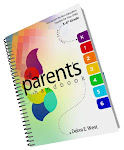Tip #37: Know the Difference Between Teasing and Bullying
Kids poke fun at one another. It's just what they do. Our instinct as parents may be to immediately stop the behavior and try to protect our kids from it, but, some teasing is critical to our children's social development, and some teasing can be considered bullying. That brings us to tip #37.
Tip #37: Understand when you child is being teased or bullied.
When kids make fun of their friends without aggression or any intention of hurting their feelings, it's called positive or productive teasing. This kind of behavior, says Mill, a communications professor at the University of Alabama, helps kids build relationships and use humor to address taboo topics or handle sticky situations. According to Dacher Keltner, a psychology professor at the University of California, Berkeley, 60 to 70 percent of the teasing young kids do is positive.
Teasing Vs. Bullying
1. Teasing is misunderstood because it is often confused with bullying, which has a strictly negative impact.
2. The way to distinguish between the two is by intent.
3. The goal of teasing is to create a closer relationships and make connections.
4. The goal of bullying is to harm.
5. Teasing turns into bullying when kids use it to gain greater social status.
6. It has been found that 4-5 year old will bully to increase their social power.
7. Even the most positive teasing turns sour if it goes to far.
Definition: Teasing Vs. Bullying
When both people are equal in size, intelligence, and age and are having fun, it's teasing. But when the two aren't equal and one is more poplar, bigger, or powerful, the exchange is out of balance, it's bullying.
If your child tells you his/her classmates called him/her ugly, don't just jump in to assure them they are beautiful, says Mills. "As soon as you do that, you've let them become victimized." Instead, listen to what they say, and then help them come up with a plan to address it the next time it happens. If you want more information, don't ask your child directly if he's being teased. Instead a question that can be answered in the second or third person. How do kids joke around these days? Or, what is teasing for kids today?






0 comments:
Post a Comment